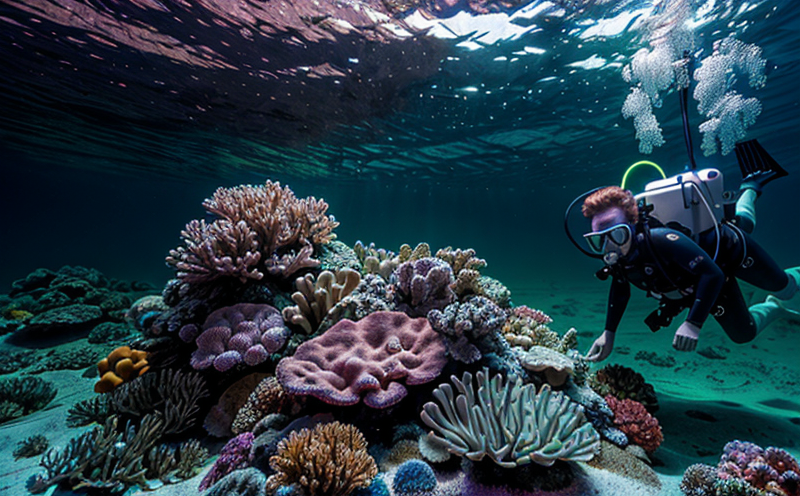DNV GL Certification Testing of Marine and Offshore Lighting Systems
DNV GL is a globally recognized classification society that sets standards for safety and quality in the maritime industry. Their certification testing ensures compliance with international regulations, enhancing reliability and trust in marine and offshore lighting systems.
The process involves rigorous evaluation of lighting systems used on vessels, platforms, and other structures operating in challenging environments such as saltwater, high humidity, and extreme temperatures. This service covers a wide range of applications including navigation lights, deck lights, emergency lighting, and signal lights. The testing ensures these systems remain functional under harsh conditions, thereby safeguarding crew safety and operational efficiency.
For quality managers and compliance officers, obtaining DNV GL certification is crucial for meeting regulatory requirements and ensuring product reliability. R&D engineers benefit from this service as it provides a pathway to innovate within established standards. Procurement teams can leverage these certifications to source reliable components and materials that meet stringent environmental and safety criteria.
The testing process includes multiple phases, each designed to simulate real-world conditions faced by marine lighting systems:
- Environmental conditioning tests to replicate exposure to salt spray, humidity, and temperature variations.
- Electrical performance checks ensuring safe and efficient operation under various load conditions.
- Structural integrity assessments to confirm the robustness of components against mechanical stress and corrosion.
The testing apparatus used includes specialized chambers for environmental conditioning, current meters, voltage analyzers, and other precision instruments. Rigorous acceptance criteria are applied throughout the process to ensure compliance with international standards such as ISO 1167:2013 and EN 50456.
Upon successful completion of testing, DNV GL issues a certificate validating the performance and reliability of marine and offshore lighting systems. This certification is internationally recognized and enhances the marketability of products by demonstrating compliance with stringent maritime industry standards.
Why It Matters
The importance of DNV GL certification in marine and offshore lighting cannot be overstated. In a sector where safety and reliability are paramount, these certifications ensure that all systems meet the highest global standards. This is especially critical for industries operating in extreme environments where even minor failures can lead to significant risks.
For quality managers and compliance officers, DNV GL certification provides peace of mind by confirming adherence to international regulations. It also serves as a benchmark against which performance can be measured and improved continuously. Compliance with these standards is essential not only for regulatory purposes but also for maintaining a safe operational environment.
R&D engineers benefit from this service through the opportunity to innovate within established frameworks. The rigorous testing process encourages the development of lighting systems that are both efficient and reliable, which is crucial in an industry where performance can directly impact safety and operational costs.
Procurement teams can source components with confidence knowing they meet stringent environmental and safety criteria. This not only ensures high-quality products but also helps in building a reputation for reliability and innovation within the industry.
International Acceptance and Recognition
The DNV GL certification is widely accepted across various countries, including those with stringent maritime regulations such as the United States, Norway, and Australia. This broad acceptance enhances the market reach and value of certified products.
Certification by DNV GL adds significant weight to a company's credentials, making it easier to win contracts in international markets where compliance is non-negotiable.
Compliance with these standards ensures that lighting systems are robust enough for use in diverse marine environments, from tropical waters to Arctic regions. This versatility is critical for the global maritime industry.
The certification process underscores the commitment to safety and quality, which are fundamental values of DNV GL. By adhering to these standards, manufacturers not only enhance their product offerings but also contribute to a safer and more efficient maritime industry.
Competitive Advantage and Market Impact
Gaining DNV GL certification provides significant competitive advantages in the market by setting a standard of excellence that competitors may struggle to match. This certification not only enhances brand reputation but also opens up new opportunities for business growth and expansion into international markets.
For companies operating within the marine and offshore lighting sector, this certification ensures they are at the forefront of industry innovation and best practices. It positions them as leaders in terms of reliability, safety, and quality, which can attract more clients and investors.
The certification also facilitates smoother compliance with local regulations across different regions. This is particularly beneficial for companies expanding their operations internationally or working on multi-national projects where regulatory variances are common. By adhering to a globally recognized standard, these firms can streamline processes and avoid delays in project timelines.





